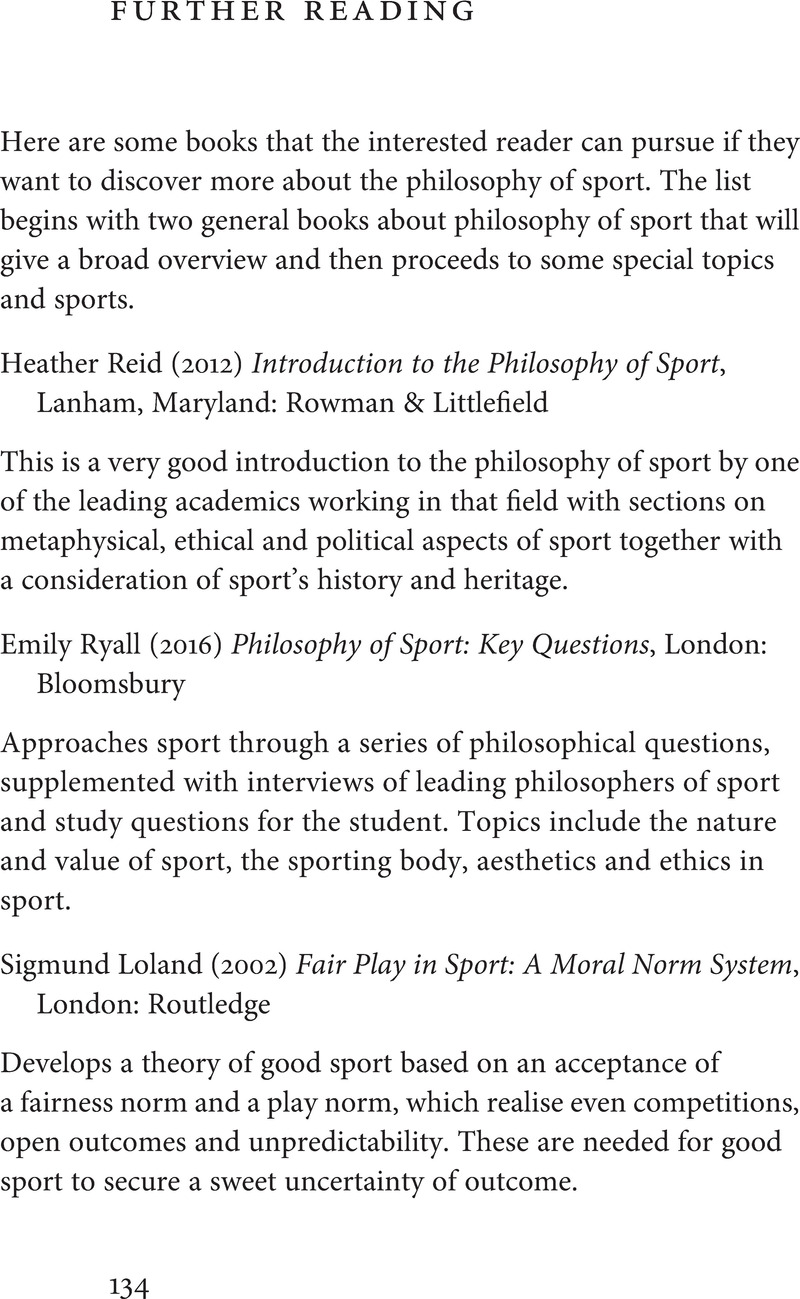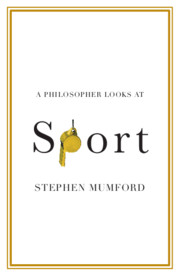Further Reading
Published online by Cambridge University Press: 20 May 2021
Summary

- Type
- Chapter
- Information
- A Philosopher Looks at Sport , pp. 134 - 137Publisher: Cambridge University PressPrint publication year: 2021
References
Further Reading
Here are some books that the interested reader can pursue if they want to discover more about the philosophy of sport. The list begins with two general books about philosophy of sport that will give a broad overview and then proceeds to some special topics and sports.
This is a very good introduction to the philosophy of sport by one of the leading academics working in that field with sections on metaphysical, ethical and political aspects of sport together with a consideration of sport’s history and heritage.
Approaches sport through a series of philosophical questions, supplemented with interviews of leading philosophers of sport and study questions for the student. Topics include the nature and value of sport, the sporting body, aesthetics and ethics in sport.
Develops a theory of good sport based on an acceptance of a fairness norm and a play norm, which realise even competitions, open outcomes and unpredictability. These are needed for good sport to secure a sweet uncertainty of outcome.
A consideration of the philosophical issues around watching sport rather than playing sport. Explores issues in aesthetics, ethics and philosophy of emotion since these are depicted as three of the main reasons to watch sport.
A leading analytic philosophy wanders through a range of subjects wherein sport and philosophy deal with similar problems and find similar solutions. The author shows what sport can teach us about philosophy and what philosophy can teach us about sport.
Possibly the greatest thoughtful book ever written about a sport. C. L. R. James is both a philosopher and a cricket enthusiast. James situates the sport within a wider social context, including a colonial heritage that shows sports contains ambiguities.
A philosophical examination of the world’s greatest game, which considers some of its key components: how teams can be greater than the sum of their parts, the vital role of chance, the importance of empty space and the motivation of victory.
Suits’s book, published originally in 1978, has been hugely influential in philosophy of sport and can be understood as a great work of philosophy generally. Developing Socratic themes, Suits argues for the place of games within utopia. The uselessness of games reveals their intrinsic value.

